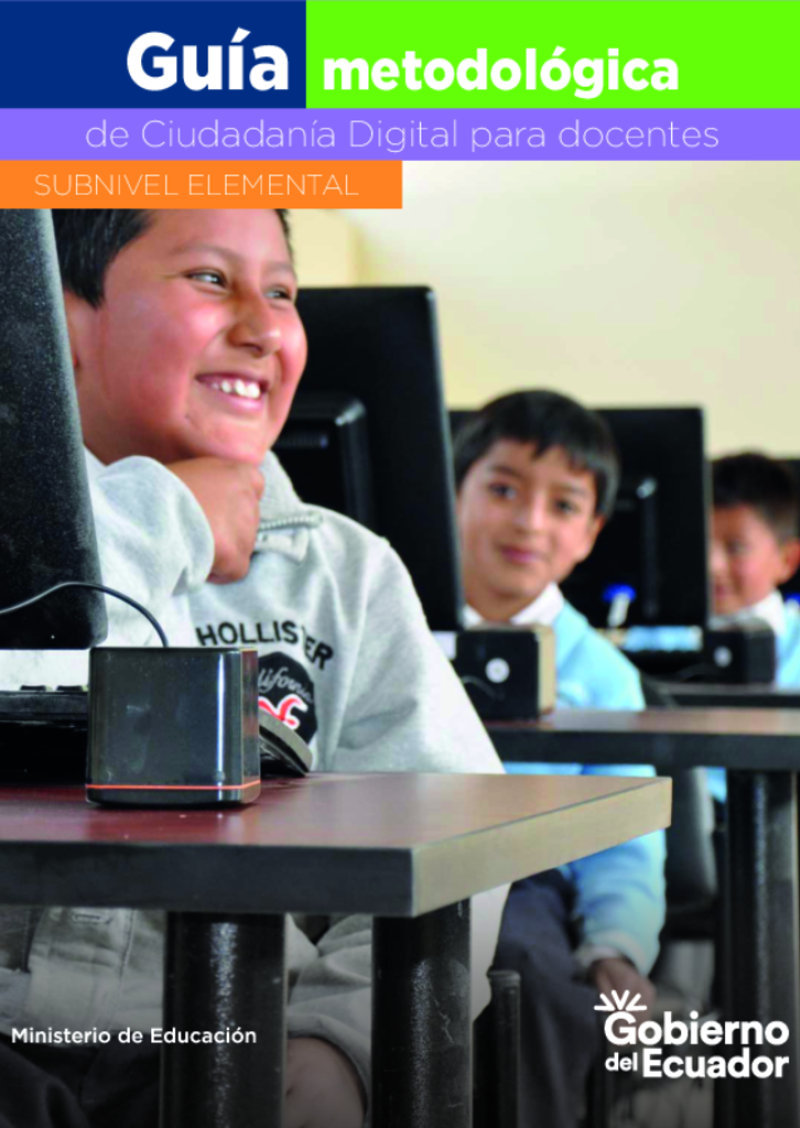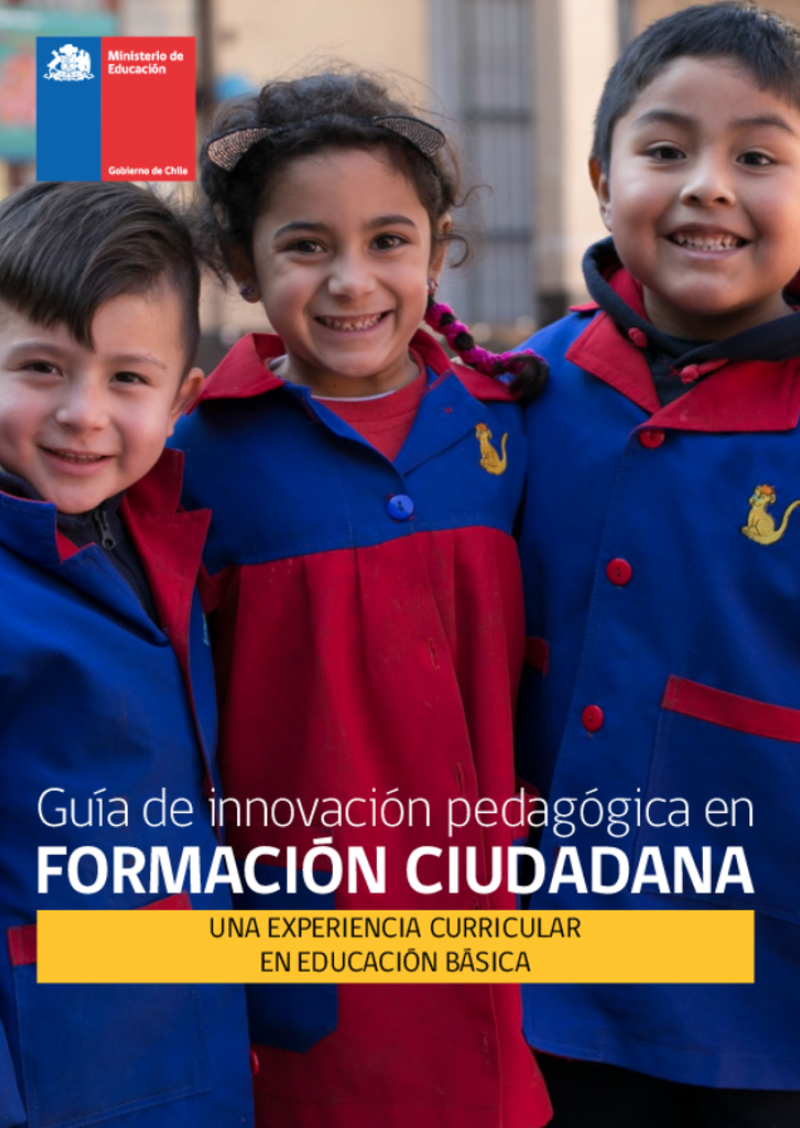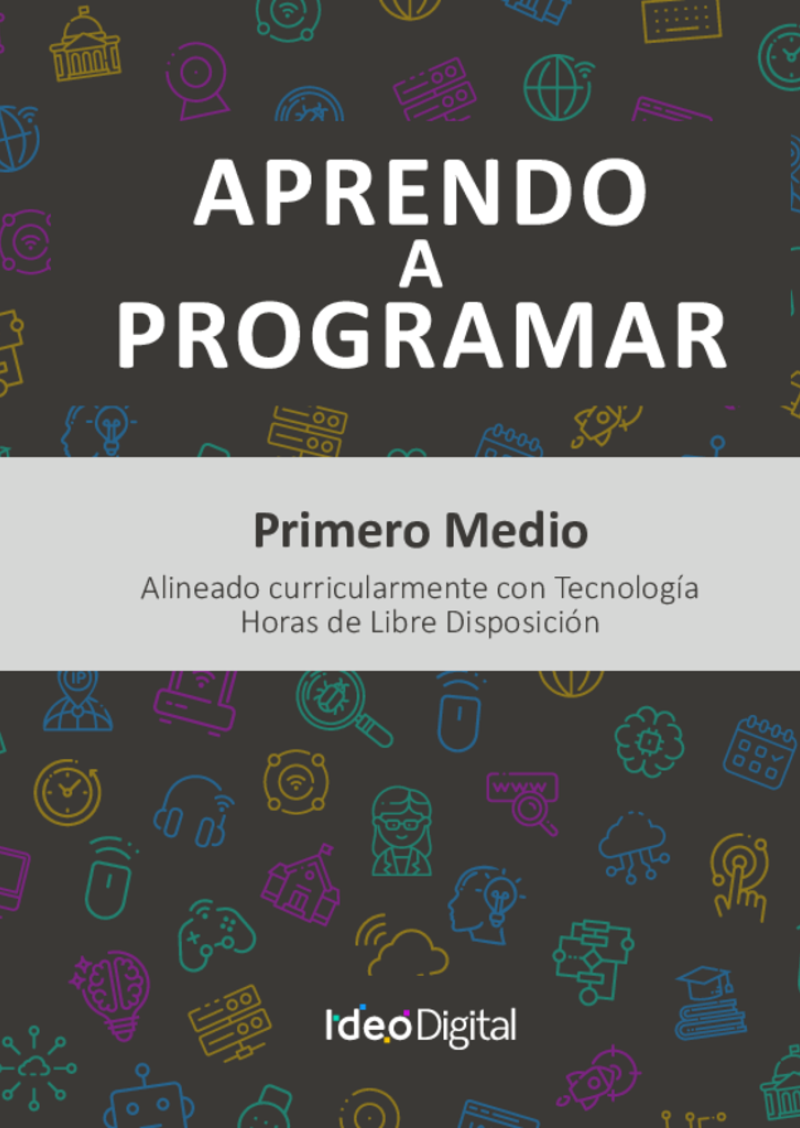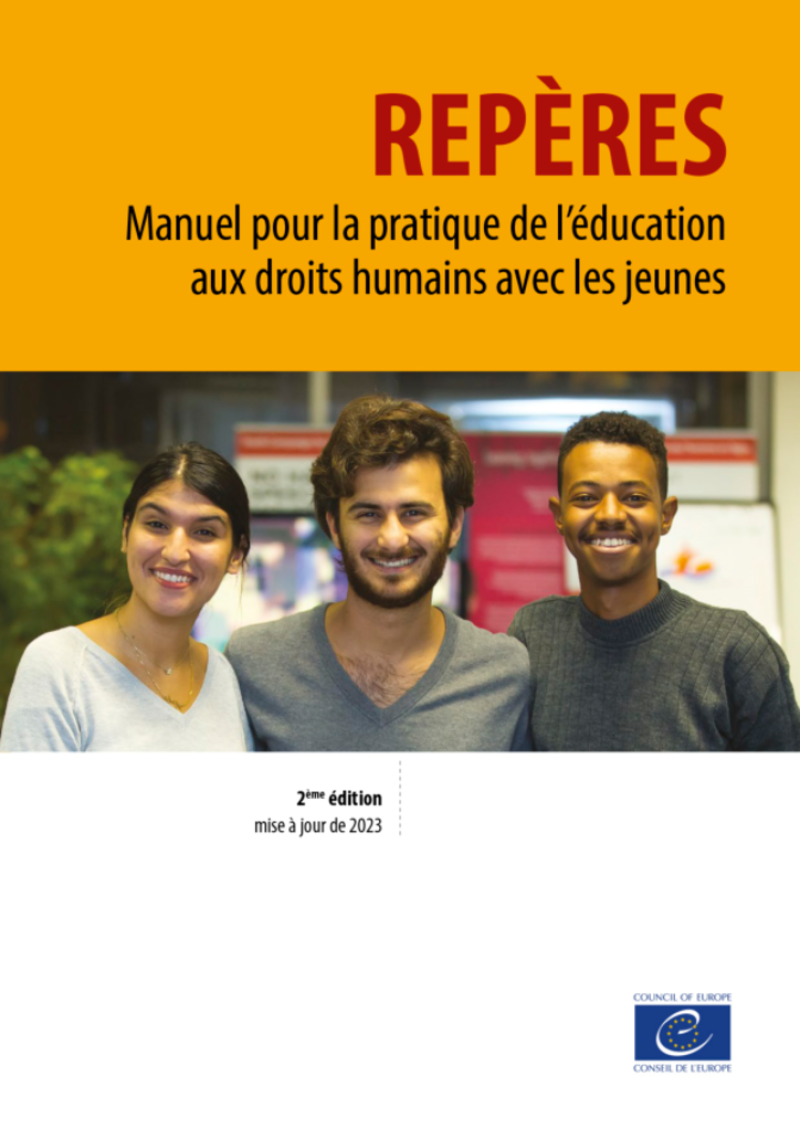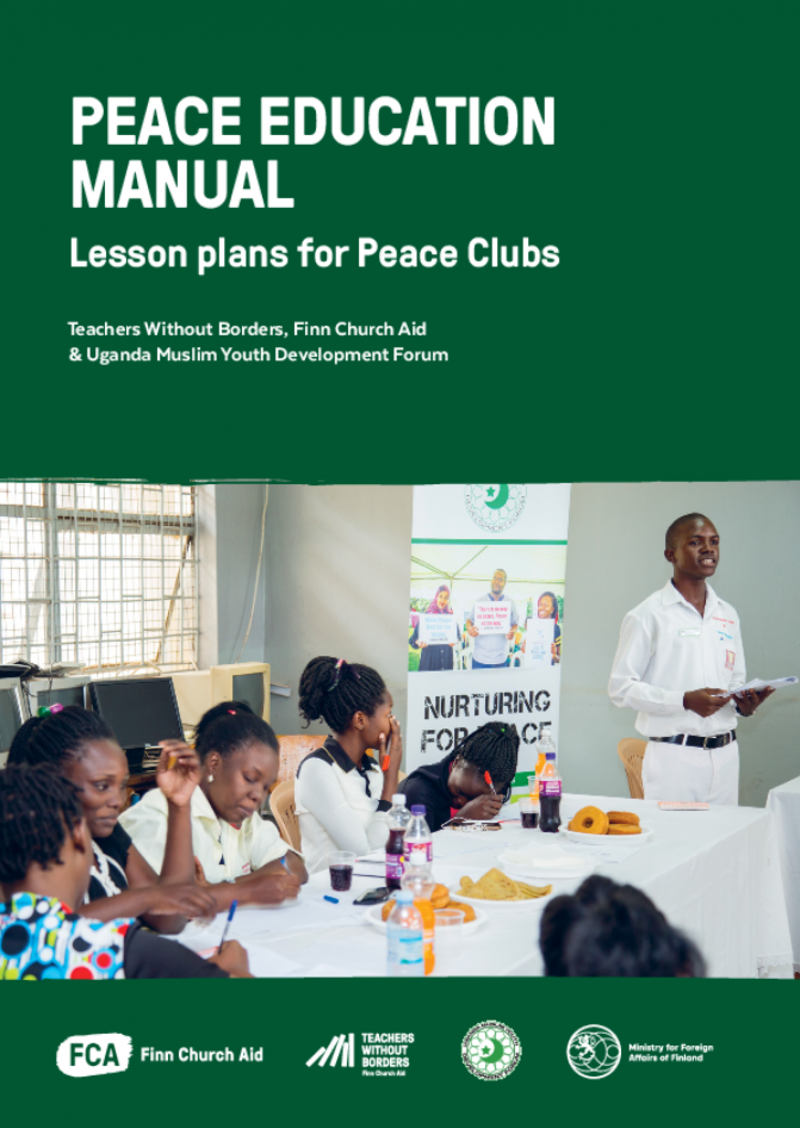مركز موارد المعلمين
عرض 1 - 20 من 36
Guía metodológica de Ciudadanía Digital para docentes - Subnivel Elemental
Este recurso sobre ciudadanía digital ofrece definiciones clave y aborda problemáticas como la alfabetización digital, la convivencia en línea, y la protección y seguridad. Se exploran temas como la autorregulación, la privacidad, el discurso de odio, el cyberbullying y el grooming. Además, se fomenta la reflexión sobre noticias falsas, identidad digital y estereotipos, así como la creatividad y participación en el entorno digital. También se discuten los derechos digitales y la legislación relacionada con el uso seguro de Internet para niños y adolescentes en Ecuador.
Guía de innovación pedagógica en formación ciudadana
Esta guía ofrece a los docentes herramientas y estrategias para comprender y enseñar el concepto abstracto de ciudadanía en el aula. Proporciona recursos pedagógicos, actividades prácticas y ejemplos concretos para ayudar a los estudiantes a internalizar valores cívicos y democráticos. Además, incluye planes de lecciones y evaluaciones que facilitan para el docente la integración del tema en su práctica, promoviendo una educación integral y participativa. Con esta guía, los docentes pueden fomentar una comprensión profunda y crítica de la ciudadanía entre sus alumnos.
Aprendo a programar - Primero Medio
El objetivo pedagógico de “Aprendo a programar” es integrar la programación y el pensamiento computacional en el sistema educativo chileno, destacando los Objetivos de Aprendizaje de las Bases Curriculares. Las lecciones, tanto en línea como sin conexión, fomentan la resolución de problemas mediante programación y el uso de recursos educativos. Esta propuesta continúa el Programa Fundamentos de la Computación, fortaleciendo conceptos y habilidades tecnológicas, y ofreciendo estrategias didácticas para mejorar el aprendizaje y la evaluación.
Educajeux - Manuel de pédagogie vidéoludique
Ce manuel explore le jeu vidéo comme outil d’apprentissage interdisciplinaire et support culturel à décrypter. Destiné aux enseignants et éducateurs, il propose des ateliers variés et des fondements pédagogiques pour intégrer le jeu vidéo dans les pratiques éducatives. En favorisant l’apprentissage par l’essai-erreur et le « learning by doing », cette ressource encourage à utiliser le jeu pour illustrer des notions abstraites et renforcer l’engagement des élèves. Elle offre aussi des essais contextualisant ce type d’apprentissage, invitant les enseignants à reconsidérer ce média et à l’utiliser comme levier pédagogique innovant.
Global citizenship education in a digital age: teacher guidelines
This publication has been designed both for new and experienced teachers, as well as other professionals working in non-formal education settings that engage with upper primary and secondary students.
Purpose:
1.By using principles of GCED, digital citizenship, and media and information literacy, the guidelines aim to build the capacities of teachers to prepare learners to understand the implications of global and digital transformations on education, and to build opportunities to practice ethical and responsible behaviours in physical and digital environments. They provide guidance on tapping into the positive potential of the digital transformation, including through new access to information, possibilities of connection, and the creation of tailored content.
2. Build learners’ capacities to think critically about the influences and content that they encounter and engage in creating in physical and digital spaces.
3. Shape learners’ understanding of global challenges and how they can contribute to the Sustainable Development Goals (SDGs) through globally oriented digital citizenship.
Repères - Manuel pour la pratique de l'éducation aux droits humains avec les jeunes
Ce manuel à destination des enseignants propose différentes ressources pour aborder la question des droits humains auprès des élèves allant de la définition des différents thèmes abordés tel que la citoyenneté, l’environnement, la mémoire, l’égalité de genre entre autres. Il y est également proposé un ensemble d’activités sous différentes formes (théâtre, audiovisuelle, études de cas, analyses de média). Il s’agit d'un guide complet qui accompagne l’utilisateur depuis le choix de l’activité, à sa mise en place auprès des élèves. Il est également accessible depuis la plateforme suivante : Repères.
Media and information literate citizens: think critically, click wisely!
This pioneering curriculum presents a comprehensive competency framework of media and information literacy (MIL) and offers educators and learners structured pedagogical suggestions. It features various detailed modules covering the range of competencies needed to navigate today's communications ecosystem. This resource links media and information literacy to emerging issues, such as artificial intelligence, digital citizenship, education, education for sustainable development, cultural literacy, and the exponential rise in misinformation and disinformation. With effective use of this media and information literacy curriculum, everyone can become media and information literate as well as peer-educators of media and information literacy.
This UNESCO model MIL Curriculum and Competency Framework for Educators and Learners is intended to provide education systems in developed and developing countries with a framework to construct a programme enabling educators and learners to be media and information literate. UNESCO also envisions that educators will review the framework and take up the challenge of participating in the collective process of shaping and enriching the curriculum as a living document. The first edition and this second edition of the MIL curriculum have benefited from several series of collaborative and intercultural expert debates and recommendations. The curriculum focuses on required core competencies and skills which can be seamlessly integrated into the existing education system without putting too much of a strain on overloaded education curricula.
The target groups for the curriculum are essentially educators and learners. Educators and learners are understood in the broadest sense of the terms to include teachers at the secondary and primarily tertiary levels, persons involved in training or learning on all forms in NGOs, CSO, community centers, the media, libraries, online or offline. Given that the curriculum was developed with adaptation in mind, it can be used by various stakeholders interested in the field of MIL. Users may need to adapt the content to make it more relevant or accessible to specific target groups. The curriculum is also relevant to government officials and ministries, and other social and international development organizations.
How to use ICT tools in teaching and learning
This booklet presents a selection of ICT tools to integrate into teacher training in Uganda. Every tool is accompanied with creative ideas and suggestions on how to engage learners and enrich lessons.
Peace Education Manual. Lesson plans for Peace Clubs
This Peace Education Manual has been developed in collaboration with Finn Church Aid (FCA) Uganda, local partner Uganda Muslim Youth Development Forum (UMYDF) and Teachers Without Borders (TWB) Network Finland.
The manual was developed to strengthen the pedagogical and methodological quality of local peace clubs during the spring and summer of 2022. The contents of the manual were successfully piloted with more than 480 young people in eight lower secondary school peace clubs established and run by UMYDF with the support of FCA in Uganda. Two of the peace clubs are located in the Bidibidi Refugee Settlement, one of the largest refugee settlements in the world.
The material consists of 34 lessons plans and is primarily aimed for young people. The different sections and activities of the material can be used flexibly in training, clubs, or, for example, as individual lessons on peace building, socio-emotional skills, conflict resolution or cooperation skills. The exercises are functional, learner-centered and emphasize active participation of youth. The material is adaptable for use anywhere in the world.
FCA and UMYDF have been working together since 2016 in Uganda to promote the positive role of youth in conflict prevention and peacebuilding. In our work, peace education is defined as a holistic, multidisciplinary and transformative process that seeks to develop capacities that promote non-violent conflict resolution, respect for human rights and active participation.
Teaching to prevent atrocity crimes: a guide for teachers in Africa
This is UNESCO's first resource with a regional focus on teaching to prevent atrocity crimes. It was developed with the United Nations and in partnership with the UNESCO International Institute for Capacity Building in Africa (IICBA). The guide was informed by exchanges with African stakeholders and advisors and tested through a piloting exercise with African teachers and students. It provides principles for teachers to consider in facilitating learning and constructive discussions with their students.
ETF READY model
The European Training Foundation's READY model (Reference model for Educators' Activities and Development in the 21st century) offers a structured way to identify the professional practices and development needs of the 21st century educators.
كيف تصمم درساً إلكترونياً في 24 ساعة
يتعرف التصميم التعليمي للتعليم الذكي
يحدد المشهد العام للتصميم التعليمي في التعليم الذكي
يفهم الخطوات الخمسة لتخطيط الدرس في التعليم الذكي
يشرح المتطلبات اللازمة لتصميم جلسة في التعليم الذكي
يصمم جلسة في التعليم الذكي باستخدام جوجل كلاسرووم Google Classroom
كيف تُصبح معلماً عن بُعد في 24ساعة
يتعرف تكنولوجيا التعليم الإلكتروني.
يحدد المكونات الرئيسية للتعليم الإلكتروني.
يحدد أدوات إدارة العملية التعليمية في التعلم الإلكتروني
يستخدم أدوات العملية التعليمية: موودل كلاود
Online Learning Design for Educators Specialization
Specialization offering three courses for educators seeking to improve and expand their repertoire of online teaching skills related to the design, development and delivery of effective and engaging online courses and lessons for school age and adult learners. It includes three courses: "Online education: The foundations of online teaching", "Create video, audio and infographics for online learning", "Online teaching: Using Zoom to connect with learners". It is possible to audit the courses for free.
Transformative pedagogy: a teachers’ guide for peace and resilience building in North Africa
This guide is designed to build the capacity of teachers so that they are informed and empowered in why and how to educate for peace-building. It offers an analysis of conflict, examines the role of ethics, expands on the elements of transformative pedagogy. It also provides practical tools to support learners’ active participation in shaping the world around them and assess learners’ understanding of peacebuilding concepts and skills, all while engaging the community.
Addressing anti-semitism in schools: training curriculum for secondary education teachers
This publication is part of a four-volume set of training curricula to address anti-Semitism in schools. This volume focuses on the training curriculum for secondary education teachers. Each volume in this set aims to assist trainers in the field of education globally to work effectively towards strengthening the capacity of teachers to prevent and respond to antiSemitism, this specific and highly dangerous type of prejudice directed at Jewish people. In this sense, the curriculum addresses anti-Semitic prejudice and perceptions of Jews, phenomena which often also fulfil a social and political function in societies around the world; it is not material aimed at preparing teachers for intercultural dialogue.
Addressing anti-semitism in schools: training curriculum for vocational education teachers
This publication is part of a four-volume set of training curricula to address anti-Semitism in schools. This volume focuses on the training curriculum for vocational education teachers. Each volume in this set aims to assist trainers in the field of education globally to work effectively towards strengthening the capacity of teachers to prevent and respond to antiSemitism, this specific and highly dangerous type of prejudice directed at Jewish people. In this sense, the curriculum addresses anti-Semitic prejudice and perceptions of Jews, phenomena which often also fulfil a social and political function in societies around the world; it is not material aimed at preparing teachers for intercultural dialogue.
Addressing anti-semitism in schools: training curriculum for school directors
This publication is part of a four-volume set of training curricula to address anti-Semitism in schools. This volume focuses on the training curriculum for school directors. Each volume in this set aims to assist trainers in the field of education globally to work effectively towards strengthening the capacity of teachers to prevent and respond to antiSemitism, this specific and highly dangerous type of prejudice directed at Jewish people. In this sense, the curriculum addresses anti-Semitic prejudice and perceptions of Jews, phenomena which often also fulfil a social and political function in societies around the world; it is not material aimed at preparing teachers for intercultural dialogue.
